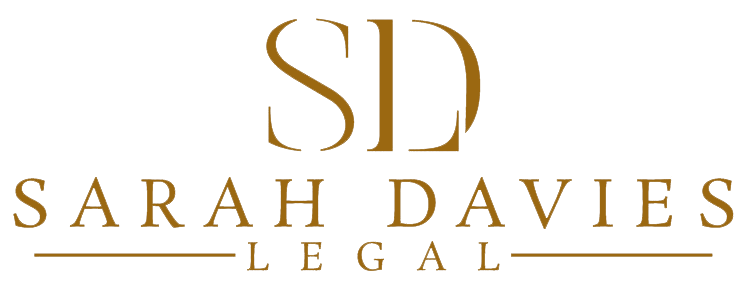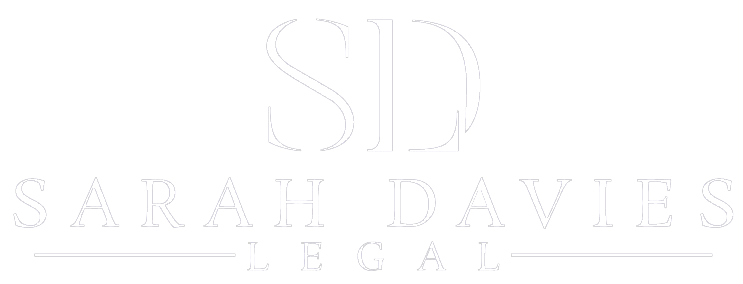In certain circumstances, the law will protect a party from unconscionable conduct by another party. That protection is available under the common law (or judge-made law) and the Australian Consumer Law (ACL).
Common law
The concept of unconscionability was eloquently summed up by one particular judge:
“The court has power to set aside a transaction…whenever one party to a transaction is at a special disadvantage in dealing with the other party because of illness, ignorance, inexperience, impaired faculties, financial need or other circumstances affecting his ability to conserve his own interests, and the other party unconscientiously takes advantage of the opportunity thus placed in his hands.“
Justice Kitto in Blomely v Ryan (1956) 99 CLR 362
The common law has always strictly limited the types of cases in which it will find unconscionable conduct. The law will not protect a party from a hard bargain. For example, if a party enters into a contract to supply goods to another party and subsequently discovers the contract price was below the cost of making the goods, the law will not intervene to set the contract aside. This is the case even if the other party to the contract is making an exceptional profit on the resale of the goods.
Parties are free to make their own commercial arrangements, and there is considerable public benefit in ensuring that parties have certainty in the arrangements they make. The law will only intervene if there are circumstances of unconscionability surrounding the contract.
At common law, there are three broad principles which underlie the doctrine of unconscionable conduct:
- Those in positions of strength or influence should not take advantage of another’s relative weakness.
- People should not, by appeal to strict legal rights, cause hardship to others by violating their reasonable expectations.
- Those in fiduciary positions should act only in the interests of those to whom those fiduciary duties are owed.
The ACL now provides that a person must not, in trade or commerce, engage in conduct that is unconscionable, within the meaning of the unwritten law from time to time (section 20). This means the common law referred to above is relevant in determining whether there has been unconscionable conduct under the ACL.
Broader scope
However, the ACL goes further than the common law and provides additional protection to parties with less power in the marketplace, who can be subject to undue pressure in commercial negotiations (sections 21 and 22). It provides that a person must not, in trade or commerce, in connection with the supply or acquisition of goods or services to a person (other than a listed public company), engage in conduct that is unconscionable.
The legislation is not limited by the common law definition of unconscionable conduct, and can apply to a broader range of situations. It provides protection to consumers and small businesses.
Conduct may be unconscionable if it’s particularly harsh or oppressive. This means it must be more than simply unfair, and must go beyond hard commercial bargaining. For example, Australian courts have found transactions or dealings to be ‘unconscionable’ when they involve conduct which is clearly unfair and unreasonable.
In considering whether conduct is unconscionable under the ACL, the court can consider the terms of the contract, the manner of negotiating the contract, or the way in which the contract is carried out. Specifically, it can have regard to the following issues:
- The relative strengths of the bargaining positions of the parties.
- Whether the customer/small business was required to comply with conditions not reasonably necessary for the protection of the legitimate interests of the business.
- Whether the customer/small business was able to understand any documents relating to the supply or acquisition of the goods or services.
- Whether any undue influence or pressure was exerted on, or any unfair tactics were used against, the customer/small business.
- The amount for which, and the circumstances under which, the customer/small business could have acquired identical or equivalent goods or services from a person other than the business.
- The extent to which the business’s conduct towards the customer/small business was consistent with its conduct in similar transactions with other customers.
- The requirements of any applicable industry code.
- The extent to which the business unreasonably failed to disclose to the customer/small business any intended conduct of the business which might affect the interests of the customer/small business, and any risks to the customer/small business (being risks the business should have foreseen would not be apparent to the customer/small business).
- If there’s a contract between the business and the customer/small business, the extent to which the business was willing to negotiate the terms of the contract, and the conduct of the business in complying with the terms of the contract.
- Any conduct of the business or the customer/small business, relating to their commercial relationship, after they entered into the contract.
- Whether the business has a contractual right to vary unilaterally a term of the contract.
- The extent to which the business and the customer/small business acted in good faith.
Case examples
In 2013, the Full Federal Court considered the case of ACCC v Lux Distributors. The case is an important one in demonstrating the way in which the courts will deal with unconscionable conduct. The details were as follows:
- Lux had a scripted telemarketing approach to consumers whose details were obtained from their database or the phone book. There was no evidence Lux had particularly targeted elderly women. However, the case examples the ACCC relied upon were women in their 80s and 90s.
- The scripted phone call indicated to the consumer that a Lux representative would be in their area the following day to provide a free maintenance service for their vacuum cleaner. The court found that this was a half-truth, designed to create an expectation on the part of the consumer that they were simply getting a free service. In fact, the real purpose for the visit was to enable the salesperson to gain entry into the household to sell a Lux vacuum cleaner to the consumer. By using this ruse, the sales representatives were able to spend a considerable time in the consumer’s home selling the benefits of a new vacuum cleaner. In particular, once the service of the consumer’s vacuum cleaner had been carried out, the salesperson would provide a demonstration of the performance of a new Lux vacuum cleaner compared to the consumer’s existing vacuum cleaner.
- The court found that senior management of Lux was responsible for the telemarketing script. They were also aware the Lux sales representatives were paid on a commission basis so that they didn’t receive anything unless they sold a vacuum cleaner. Therefore, whilst the senior managers may not have been aware of the specific details of what took place in relation to individual sales, they were responsible for the overall sales method.
- Lux had no consumer law compliance program in place and the sales representatives were only given minimal information relating to consumer rights and the door-to-door sales requirements. It’s important to note there was no allegation that the salespeople had told lies or bullied the elderly consumers. However, the court did find that the salespeople did not comply with the door-to-door selling requirements under the ACL and the initial entry into the home was based on a deception.
- In finding that Lux had engaged in unconscionable conduct, the court found that once the salesperson had gained entry into the home, he or she was in a much stronger bargaining position than the consumer. The court had regard to the “psychology of the selling process” and the fact that the consumers felt pressured or obligated to buy from the salesperson because they had been so helpful in servicing the old machine and demonstrating the benefits of the new Lux product.
- The court found that the initial deception (created by the telemarketing sales script) tainted the whole transaction and deprived the consumer of an opportunity to genuinely consider whether or not to allow the salesperson entry into their home.
- Importantly, the court said that a high degree of moral fault or culpability is not required in order to prove unconscionable conduct. Rather, the court said it was appropriate to apply an objective unfairness test and to consider whether the conduct was contrary to acceptable standards of commercial dealings. That reasoning has broad implications for other cases dealing with unconscionable conduct.
In 2016, in Paciocco v ANZ Bank, the High Court had to consider whether credit card late fees charged by the bank were penalties or otherwise unconscionable. The court decided the late fees were not imposed to punish customers, but rather to protect the bank’s legitimate interests against the losses it might suffer for non-payment of the credit card facilities. The bank was entitled to protect its profitability, for the benefit of its shareholders. In that context, the court dismissed the argument that the contract terms which imposed the late fees were unconscionable.
Next steps
Please contact us if you have any questions in relation to the ACL and the way it impacts upon your business. We can provide specialised legal advice in relation to unconscionable conduct, and the way the law impacts on your dealings with other businesses and customers.
Sarah Davies
Director
Sarah Davies Legal
Accredited Specialist – Commercial Litigation
This article is produced as general information in summary for clients and should not be relied upon as a substitute for detailed legal advice or as a basis for formulating business or other decisions. Formal legal advice should be sought in relation to particular matters. Sarah Davies Legal Pty Ltd asserts copyright over the contents of this document.




